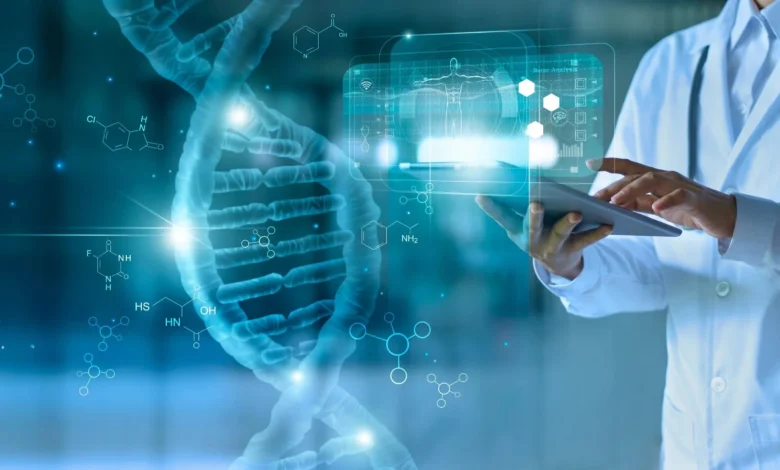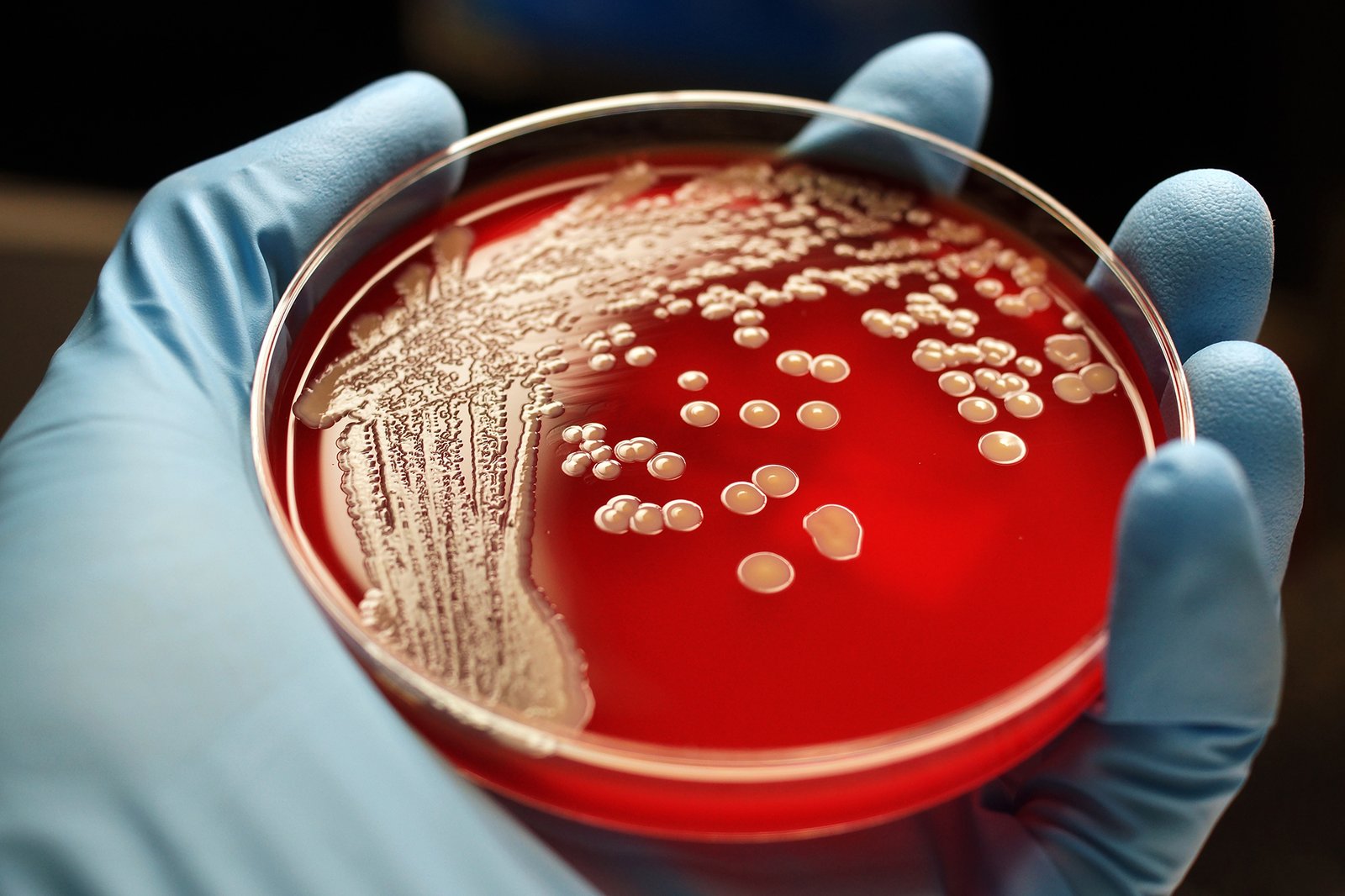From Microbes to Medicine: How Science is Revolutionizing Healthcare in 2023

In recent years, scientific advancements have led to a revolutionizing healthcare, from new treatments for diseases to cutting-edge diagnostic tools. This article explores the latest breakthroughs in , highlighting how microbes, genetics, and technology are transforming the way we approach medicine.
Healthcare is constantly evolving, and with each passing year, we see new and exciting advancements that improve patient outcomes and quality of life. The industry has come a long way since the discovery of penicillin in 1928, and today we are witnessing a new revolution in healthcare.
In this article, we will explore the latest breakthroughs in healthcare and how they are revolutionizing medicine. From the role of microbes in healthcare to the use of genetics and technology, we will look at how these advancements are changing the way we approach healthcare.
The Role of Microbes in Healthcare
Microbes have always played a significant role in human health, both beneficial and harmful. However, in recent years, we have gained a better understanding of the human microbiome and how it impacts our overall health.
The Human Microbiome
The human microbiome refers to the trillions of microorganisms that reside in and on our bodies, including bacteria, viruses, fungi, and other microbes. These microorganisms play a critical role in our immune system, digestive system, and even our mental health.
Recent research has shown that imbalances in the microbiome can lead to a wide range of health problems, including autoimmune disorders, allergies, and even mental health issues. Understanding the microbiome has opened up new possibilities for treatments and therapies.
Microbes and Antibiotics

Antibiotics have been a cornerstone of modern medicine since their discovery in the early 20th century. However, the overuse and misuse of antibiotics have led to the development of antibiotic-resistant bacteria, a growing global health threat.
Recent research has shown that the use of bacteriophages, viruses that target and destroy specific bacteria, may provide a viable alternative to antibiotics. Bacteriophages can be tailored to target specific strains of bacteria, making them a promising tool in the fight against antibiotic resistance.
Genetics and Precision Medicine
Advancements in genetics have opened up new possibilities for precision medicine, an approach that takes into account a patient’s genetic makeup to tailor treatments to their specific needs.
Understanding Genetic Variations
Recent studies have shown that genetic variations can impact a patient’s response to medications, which can lead to adverse drug reactions and treatment failures. By understanding a patient’s genetic makeup, healthcare providers can tailor treatments to be more effective and reduce the risk of adverse reactions.
Personalized Medicine

Personalized medicine is a growing field that uses a patient’s genetic information to develop targeted therapies. This approach has shown promising results in cancer treatment, where treatments can be tailored to a patient’s specific cancer type and genetic makeup.
In addition to cancer treatment, personalized medicine has the potential to revolutionize the treatment of other diseases, including rare genetic disorders and autoimmune diseases.
Wearable Devices and Health Monitoring
Wearable devices, such as smartwatches and fitness trackers, have become increasingly popular in recent years. These devices can track a range of health metrics, from heart rate and activity levels to sleep quality and stress levels.
The data collected by wearable devices can be used to identify potential health issues and monitor chronic conditions, such as diabetes and heart disease. This real-time monitoring can lead to earlier interventions and improved patient outcomes.
Artificial Intelligence in Healthcare
Artificial intelligence (AI) has the potential to revolutionize by improving diagnosis and treatment outcomes. AI algorithms can analyze vast amounts of data, including medical images and patient records, to identify patterns and make predictions.
One promising application of AI in healthcare is the development of predictive models for diseases, such as Alzheimer’s and Parkinson’s. These models can help providers identify patients who are at higher risk of developing the disease and develop personalized prevention strategies.
Challenges and Opportunities in the Future of Healthcare
While the advancements in healthcare offer many opportunities, they also pose significant challenges, including ethical considerations and accessibility.
Ethical Considerations
As we develop new treatments and diagnostic tools, ethical considerations become increasingly important. The use of genetic information, for example, raises questions about privacy and discrimination.
Additionally, the development of AI in raises concerns about the potential for biased algorithms and the impact on the doctor-patient relationship.
Healthcare Accessibility
Access to remains a significant challenge in many parts of the world. While the latest advancements in offer many opportunities, they also have the potential to widen the gap between those who have access to healthcare and those who do not.
Efforts to improve accessibility, such as telemedicine and mobile health clinics, are essential in ensuring that everyone has access to the latest advancements.
Read More:Climate Change: The Science Behind the Headlines in 2023
Conclusion
The healthcare industry is in the midst of a revolution, driven by scientific advancements in microbiology, genetics, and technology. From the human microbiome to personalized medicine and AI, these advancements have the potential to transform the way we approach..
However, as we move forward, it is essential to address the challenges posed by these advancements, including ethical considerations and accessibility, to ensure that everyone can benefit from the latest breakthroughs in healthcare.
FAQs
- What is precision medicine? Precision medicine is an approach to that takes into account a patient’s genetic makeup to develop targeted therapies.
- How can wearable devices improve outcomes? Wearable devices can collect real-time health data, which can be used to identify potential health issues and monitor chronic conditions, leading to earlier interventions and improved patient outcomes.
- What is the human microbiome? The human microbiome refers to the trillions of microorganisms that reside in and on our bodies, including bacteria, viruses, fungi, and other microbes.
- What are the potential challenges posed by the development of AI in healthcare? The development of AI in raises concerns about the potential for biased algorithms and the impact on the doctor-patient relationship.
- Why is accessibility important? Access to healthcare is essential in ensuring that everyone can benefit from the latest advancements in healthcare and achieve optimal health outcomes.












One Comment